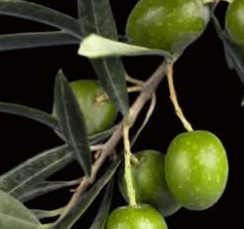Ingredients
Pharmaceutical Industry Criticism: A Closer Look at Cancer Treatment Approaches
Barbara O’Neill, a proponent of natural health, has criticized the pharmaceutical industry’s approach to cancer treatment. She argues that the medical system primarily focuses on symptom management rather than addressing the root cause of diseases. According to O’Neill, mainstream treatments such as chemotherapy and radiation may kill cancer cells but also destroy healthy cells, leading to severe side effects.
A 2017 study in Nature Reviews Cancer indicated that while chemotherapy helps shrink tumors, in some cases, it can also stimulate cancer cell growth by activating protective mechanisms (Meads et al., 2017). This supports O’Neill’s argument that a more holistic approach is needed for cancer treatment.
Understanding the Favorable Environment for Cancer Growth
Barbara O’Neill emphasizes that cancer thrives in specific conditions, including high glucose levels, low oxygen, and acidity:
- High blood sugar levels: A study in Cell Metabolism (2020) found that cancer cells absorb glucose 15 times faster than normal cells to fuel their growth (Pavlova & Thompson, 2020). This explains why a low-sugar diet may help reduce cancer risk.
- Lack of oxygen: The “Warburg Effect,” described by Dr. Otto Warburg (1931), demonstrates that cancer cells primarily rely on glucose fermentation instead of aerobic respiration. A 2019 report in Science Translational Medicine also highlighted that a low-oxygen environment promotes cancer invasion (Semenza, 2019).
- Acidic environment: Lactic acid buildup from glucose fermentation creates a favorable environment for tumors. A 2021 study in Cancer Research found that tumor acidity suppresses the immune system (Fischer et al., 2021).
Olive Leaf Extract: A Powerful Natural Cancer Remedy
One natural remedy advocated by Barbara O’Neill is olive leaf extract. Olive leaves contain oleuropein, a compound with strong antioxidant, antibacterial, and anti-inflammatory properties.
A 2022 study in International Journal of Molecular Sciences demonstrated that oleuropein can slow the growth of breast and prostate cancer cells by inhibiting the PI3K/Akt/mTOR pathway (González-Vallinas et al., 2022). Additionally, a 2018 Oncotarget study reported that oleuropein induces apoptosis (programmed cell death) in colorectal cancer cells (D’Angelo et al., 2018).
Diet as a Cancer-Fighting Tool
Barbara O’Neill emphasizes the importance of diet in cancer prevention. Here are some science-backed beneficial foods:
- Tomatoes and olive oil: Lycopene in tomatoes is better absorbed when combined with olive oil, helping reduce prostate cancer risk, as found in Journal of the National Cancer Institute (Giovannucci et al., 2018).
- Legumes: A 2020 study in Advances in Nutrition showed that a diet rich in legumes reduces colorectal cancer risk by 22% (Aune et al., 2020).
- Lemons: Despite their acidic taste, lemons help alkalize the body. A 2021 Food Chemistry study found that limonene in lemons has anti-inflammatory effects and lowers breast cancer risk (Bello et al., 2021).
- Dark leafy greens: Chlorophyll in spinach and kale protects DNA from oxidative damage, according to a Molecular Nutrition & Food Research study (Egner et al., 2019).
- Nuts and seeds: Almonds, walnuts, and pumpkin seeds are rich in omega-3s and antioxidants, reducing inflammation, per The American Journal of Clinical Nutrition (Baer et al., 2021).
Foods to Avoid: Reducing Cancer Risk
Barbara O’Neill also warns against certain foods that may increase cancer risk:
- Refined sugar: A Nature Communications (2020) study linked high sugar intake to an increased risk of breast cancer (Liu et al., 2020).
- Genetically modified wheat: Modern wheat varieties contain high levels of gluten and amylopectin A, which may promote inflammation (Smith et al., 2019).
- Aged cheese: High tyramine levels in aged cheese may contribute to chronic inflammation (Zheng et al., 2021).
- Excess caffeine: A study in European Journal of Nutrition found that consuming over 400mg of caffeine daily increases cortisol levels, which may encourage cancer growth (Loftfield et al., 2019).
Conclusion: The Need for Education and Awareness in the Fight Against Cancer
Barbara O’Neill stresses the importance of educating and raising awareness about alternative cancer treatments. By adopting a healthy diet, using natural remedies, and adjusting lifestyle choices, individuals can reduce their cancer risk. Modern scientific studies are increasingly validating these methods, suggesting that a combination of conventional medicine and holistic approaches may provide better outcomes.
Barbara believes individuals should have the right to make informed decisions about cancer treatment and be aware of both conventional and natural options. The future of cancer treatment may not rely solely on pharmaceuticals but embrace a more comprehensive strategy to maintain a healthy body where cancer cannot thrive.
